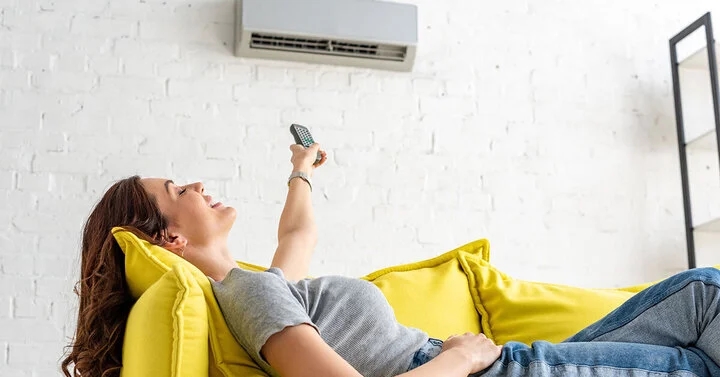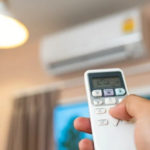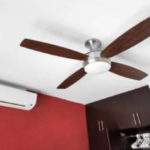Using air conditioning efficiently involves finding ways to conserve energy and protect your health. However, turning air conditioning on and off unreasonably can lead to energy wastage and health issues such as colds, sore throats, and other respiratory problems. Therefore, it is essential to know the right way and time to turn your air conditioner on and off.
How long should you keep the air conditioner on before turning it off?
There is no one-size-fits-all answer to this question as it depends on various factors such as ambient temperature, air conditioner capacity, room size, and individual usage habits. However, some general principles can be applied.
When you first turn on the air conditioner, it is recommended to let it run continuously for about 15-30 minutes to reach the desired temperature. This helps to quickly cool down and stabilize the room temperature. Once the desired temperature is reached, the air conditioner should be maintained for about 2-3 hours.
During the day, when outdoor temperatures are high, you can keep the air conditioner running continuously for about 2-3 hours and then turn it off to prevent overload and energy wastage. It is advisable to use a fan to maintain a cool environment while the air conditioner is off.
At night, you can turn on the air conditioner about 2-3 hours before bedtime. Once the room is cool, use the timer to automatically turn off the air conditioner after about 1-2 hours to save energy and protect your health.

How long should you keep the air conditioner on before turning it off? (Photo: Best Life)
Factors Affecting Air Conditioner On/Off Time
Ambient Temperature: The outdoor temperature significantly impacts the time required to cool a room. If the outside temperature is extremely high, the air conditioner will need more time to cool the room.
Air Conditioner Capacity: A higher-capacity air conditioner will cool the room faster and can be turned off earlier compared to a lower-capacity unit.
Room Size: Larger rooms take longer to cool, so when using an air conditioner in a spacious area, you may need to run it for a more extended period than in a smaller room.
Insulation: Proper insulation helps retain the cool temperature for longer, allowing you to turn off the air conditioner earlier while still maintaining a comfortable environment.
Tips for Efficient Air Conditioner Usage
Here are some tips to help you use your air conditioner more efficiently and save energy.
Avoid Frequent On/Off:
Some people tend to turn off the air conditioner when the room is cold enough and use a fan instead to save energy. However, this approach can consume more energy as the air conditioner needs to restart multiple times, leading to potential damage. Instead, consider turning the air conditioner on or off about 30 minutes before leaving or entering the room.
Choose “Dry” Mode in High Humidity:
The “Dry” mode (symbolized by a water droplet) consumes less energy as it removes moisture from the room, creating a dry and comfortable environment. However, this mode is most effective when the humidity level is above 60%. In dry and hot conditions, with humidity below 50%, opt for the “Cool” mode as it will provide a more satisfactory cooling effect.
According to experts, in extremely hot weather, with temperatures soaring above 40°C, the “Dry” mode becomes almost ineffective, and may even make the room feel warmer and more uncomfortable.
Utilize the Timer Function:
Most modern air conditioners come with a timer function, and some even have a “Sleep” mode. The timer button on the remote control is incredibly useful and often overlooked when it comes to energy-saving practices. Use the timer to set the desired duration for the air conditioner to remain on.
Especially at night, when temperatures drop, you can use the timer or sleep function to prevent the room from becoming too cold, ensuring a comfortable sleep. By setting a timer, you not only get a good night’s rest but also effectively save energy. On average, an air conditioner consumes 1 kW of electricity per hour.
Turn Off the Air Conditioner 30 Minutes Before Leaving:
It is recommended to turn off the air conditioner about 30 minutes before leaving the room. This way, you still benefit from the cool temperature while saving energy. The gradual decrease in temperature allows your body to adjust and prevents thermal shock when stepping outside.
Use a Small Capacity Fan:
Consider adding a small capacity fan to your air-conditioned room. This helps distribute the cool air more evenly, allowing you to feel the effects of the air conditioner better. As a result, instead of setting the temperature to 25°C, you can opt for 28°C and still feel comfortable, all while saving energy.
Additionally, avoid running the air conditioner continuously for extended periods, and remember to clean and maintain your unit regularly, ideally every six months.
Source: VTC news
Ways to Beat the Summer Heat: 10 Cool Strategies
With temperatures soaring to over 40 degrees Celsius in some parts of the northern region, this summer heatwave is causing considerable discomfort and inconvenience. The roads are practically melting in some areas. To keep yourself safe and bearable, here are some tips on how to cope during these hot days.
Why Should You Turn on a Fan When Using an Air Conditioner?
Combining a fan and an air conditioner brings many unexpected benefits. By merging these two technologies, you can experience the best of both worlds. The fan provides a refreshing breeze, while the air conditioner cools the room to your desired temperature. This unique combination creates a comfortable environment, allowing you to stay cool and relaxed during hot summer days. Don’t compromise on your comfort, choose the perfect blend of fan and air conditioning technology for ultimate satisfaction.






































